
I recently saw a collection of studies that showed that drinking coffee is good for you – and consuming up to 6 cups per day (!) was linked to less diabetes, suicide risk, gall stones, stroke, Alzheimer's and prostate cancer. Dang. While I don't feel a bit guilty when I enjoy a latte a few days per week, I was a bit shocked by (and skeptical of) those reports.
Many coffee drinkers seem to have a love/fear relationship with coffee. We love the savory aroma, the smooth but bitter taste, and, of course the warm kick of energy that helps us get through the day. But on the flip side, we fear that coffee is keeping us up at night, adding to anxiety, and is generally not great for our health.
So with so much conflicting info out there, what's the real deal about the health benefits of coffee? Is coffee good for you after all? Let's break it down:
Caffeine may not be the devil
If you’re looking for a jolt of energy, then caffeine is often the answer that most folk reach for. This substance naturally occurs in coffee beans, and it essentially tells the heart rate to speed up, promptly increasing blood flow which sends more oxygen to the brain. Zing!
If you've never been exposed to caffeine and suddenly have your first cup of coffee (or other caffeinated substance), your blood pressure skyrockets. Within a few weeks of regular consumption, your body's response to caffeine lessens to a point but still remains elevated from your pre-caffeine heart rate. (source)
Many folks find that consuming caffeine disturbs their sleep, heightens stress, and creates digestive upset.
For others, the increase in extra caffeine may not lead to health issues. In a recent study, women and men age 50-71 were studied to see what effects caffeine had on them and if drinking coffee increased their risk of death. The findings determined there was no rise in their risk of death, and in fact, the more coffee they drank the better off they were. (source)
Surprising though it may be, it seems that caffeine may have some protective health benefits – especially in folks 50 and above.
But what about addiction?
I enjoy being the health practitioner that get to tells my patients it's a good idea to eat foods like coconut oil, oysters, butter, and bacon. By the same token it's nice to see folks relax when I tell them they don't need to give up coffee. BUT – you can call me conservative, if you will: I draw my line at one cup.
Despite the studies that indicate otherwise, I believe that the average individual does not need more than one cup of coffee per day, and definitely no more than two caffeinated drinks total. Why? Despite its potential health benefits and lifestyle perks: caffeine is a drug.
Ideally, I recommend only enjoying coffee as needed a few times per week, however, the strong addictive nature of the stuff has most coffee drinkers relying on a daily fix.
Is a coffee addiction a bad thing?
It's up to you to decide if you are bothered by this addiction. If you do decide to take a break from coffee, you are likely to suffer from fatigue, brain fog, headaches, and irritability. You may even find that your regular BM schedule does not ‘move' as regularly.
The good news is, that if you find that you need or want to stop drinking coffee, the withdrawal symptoms typically only last 1-2 weeks (unlike other drug addictions that have much longer withdrawal time). (source)
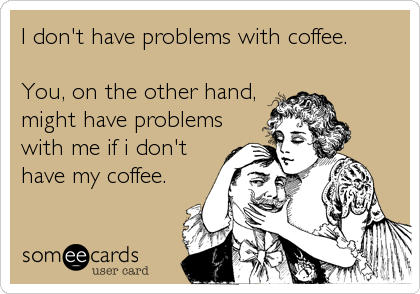
Antioxidants – coffee's fighting for you life
Folks trying to convince you that coffee is good for you are sure to mention its antioxidants. Antioxidants protect against damage from free-radicals to help prevent heart disease, liver/colon cancer, Parkinson’s disease and more. (source)
As it turns out, most Americans get their daily dose of antioxidants from coffee, so they’re actually helping fight disease every day.
Consider though, if you eat a Standard American Diet of processed and packaged foods, drinking coffee is hardly a sufficient solution to reducing inflammation and disease. If you're already eating a healthy diet (properly sourced meat, fish, and dairy; seasonal fruits and veggies; plenty of good fat; and minimal junk food) the antioxidants in coffee may be icing on the (already healthy) cake.
What about the toxins in coffee?
The effects of antioxidants might be canceled out due to caustic chemicals like pesticides used to grow conventional coffee beans. Ingesting these chemicals can lead to everything you thought coffee was protecting against – cancer, Parkinson’s, and more. (source) Because of this, it's worth going out of your way to drink certified organic coffee (preferably from a sustainable source, as well).
Aside from the beans themselves, if you're not paying attention I can guarantee you that the cream, flavoring, and sweeteners you put in your joe will most certainly be laden with nasty junk too. Here in Los Angeles, I have to go out of my way to find a coffee shop that has organic, grass fed milk (sometimes I'm that lady that brings her own milk).
When it comes to add-ons, steer clear of the flavored/non-dairy creamers, flavors that come out of a pump, and artificial sweeteners. In my opinion, if you must sweeten and don't have raw honey, sucanat, or maple syrup handy, you're better off with a teaspoon of white sugar than one of those dreaded pink, blue, or yellow packets.
Prefer stevia? Read ‘Is Stevia Healthy‘ here.
Is green tea a better choice?
Coffee contains more caffeine than tea. Beyond that, from Chinese medicine perspective each food and drink also has a ‘temperature' quality (that doesn't always correlate to whether or not you have you drink hot or on ice).
Whereas green tea is neutral and slightly cooling, coffee is hot, bitter, and scatters the ‘qi' or life force. The properties of coffee can exacerbate conditions such as insomnia, anxiety, heart palpitations, and adrenal fatigue. On the flip side, coffee can help conditions including depression, constipation and asthma.
For those who already have a tendency toward anxiety, fits of anger, poor sleep, adrenal fatigue, irritable bowel syndrome, or other digestive upset; green tea many be a better choice over coffee (if any caffeine is to be consumed at all).
So… is coffee good for you?
There can be a million studies about the benefits or risks of coffee, but in the end you will know best if this loved and feared drink is right for your body.
Some days the answer may be a resounding yes, and other days it may be best to steer clear. If your body becomes nervous, jittery or otherwise unhealthy feeling after consuming even a few sips, listen to what it's saying and put your mug down.
If you're honest with yourself and find that you do enjoy a cup of coffee each day, you feel great, and truly have no health issues – then ahead and enjoy it without guilt. Good to the last drop.
So what do YOU think? Is coffee good for YOU?
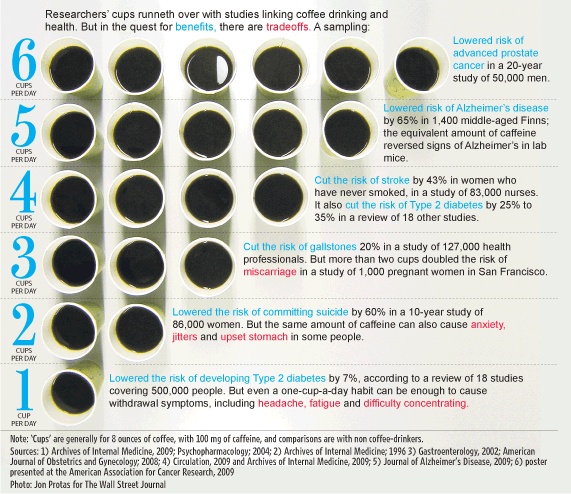




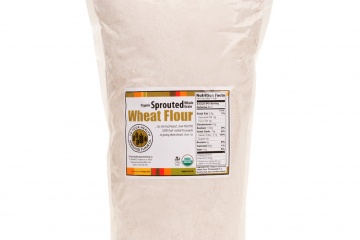

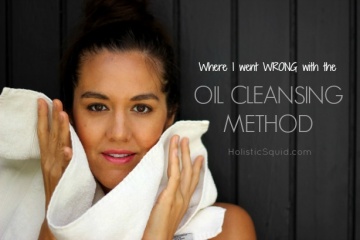
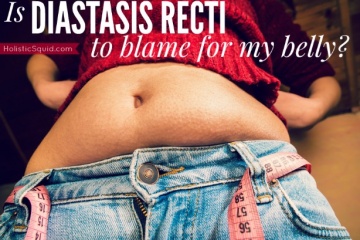
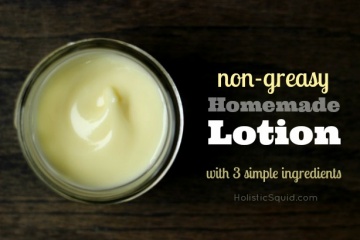
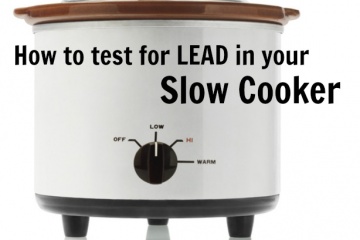
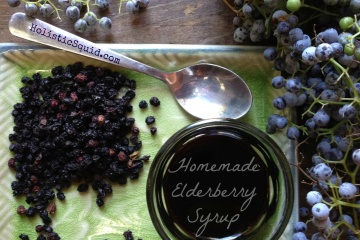
What are your thoughts on coffee during pregnancy? Is it best to just avoid or is one cup ok?
I’d like to know the same! I drank a cup almost everyday (after first trimester) either as coffee or a Breve with a shot or two. He’s super duper strong and healthy but since day one has been a very emotional kid. Screamed since day one and it was hard to pacify him… I’m pregnant now with my daughter and since I did not work I tried my best not drink coffee. I’ve had a cup here and there but not much and I’m trying to just not drink any since I’m due soon.
Hi Sarah, thank you for your question. Personally I found that 1 caffeinated beverage was way too much for me during my first pregnancy, but 1 cup of black tea was perfect during my second. Listen to you body and you should get a pretty clear answer.
I just bought a giant thermos so I can tote my coffee with me everywhere.
I was off it for a bit due to a surgery, but life was just awful. I’m much happier with coffee, and if I die young as a result, so be it.
Coffee dependence might endanger me during the zombie apocalypse, so I think I’ll stay away. Besides, I get the proper amount of sleep for my body, and eat properly so fatigue is never a problem for me. It helps that I’m child-free, of course, but I would rather avoid addiction.
I used to drink 1-2 cups (sometimes more) a day but now because of health reasons I can only tolerate one a week. Do I miss the taste and smell of coffee every morning? Very much so. But do I miss having those horrible stomach pains for hours after drinking coffee? Definitely not.
I drink coffee and for health reasons I have to quit. I am having a hard time with giving it up, it is truly addictive. I can feel my stomach not liking coffee after I drink it so I know my body wants me to quit. I am going to just have to be strong and stop drinking it, with the winter season here it does make it a little harder though 🙁
I drink a cup of coffee in the morning. The aroma just feels like morning to me. I don’t think I have an addiction, though at one cup a day, I don’t particularly care if I do (though I do wonder about coffee and nursing — a topic that will come up for me in the future). I should say, though, that I am in extremely good health and the increase in heart rate isn’t a concern for me as my heart rate is excellent as is everything else.
I stopped having coffee daily for almost 2 months now. I was getting really restless during the nights and I figure that now I sleep better. Eventually when I’m really tired I have a cup of coffee although it clearly affects my sleep.
I love coffee, the energy kick and the fact that leaves me more alert but, I’ve been choosing to have a good night of sleep. I must say that sometimes it’s hard to make this decision on the beginning of the day.
Hi Emily,
So I was skeptical because I find so many things I read these days are either telling me something is incredibly good for me (um, kale?) or so horrible I have to avoid it at all costs (GMO foods…) so I figured this might be that. I appreciate the final answer you gave. I’ve found that if I have coffee every day it annoys me because I become dependent on it quickly. Thus I only drink caffeinated coffee on weekends (and have as much as I feel like, because, hey, it’s the weekend!) and if I want it on a weekday I only have decaffeinated. It seems to work out okay. I love coffee so much and don’t want dependency to ruin our wonderful relationship!
I think you’re missing the most important point, that caffeine is very bad for the body. In the book Nourishing Traditions (which I thought you were familiar with) Sally Fallon describes in detail why you should avoid caffeine on pages 51-52. The negative effects of caffeine definitely outweigh any possible positive effects.
I drink st
sorry. I drink once in the morning. we drink stovetop espresso with mostly milk. so I simmer milk while the espresso is boiling. when I was pregnant i changed to American style coffee in the regular coffee machine plus lots of milk because my OB stated the espresso we drink is stronger. then while nursing I went down to decaf for the most part until he was several months old.
having my espresso and milk is my nourishing tradition. it’s cultural for me; it’s social for us and it’s not going away. I love it in the morning…nourishes my soul and reminds me of my grandfather. it’s kinda like rice for us…I watch my grains but draw the line at taking rice away. in fact I love your post about white rice ;). there is white basmati in the house every day…organic ad of course cooked in bone broth which is our tradition.
Thank you for never taking the sweeping view of a food always being good or bad for everyone always.
The only time I drink coffee is when I need to be both creative and productive. Otherwise, I find it leaves me too scattered. The caffeine in Guayakí Yerba Mate works better for me other days.
What do you feel about the mineral depletion from caffeine consumption? Is a lack of jing and deep, bone-based minerals and substances not the cause of caffeine’s scattering effects on some? I just feel like there should be a caveat attached to your article explaining this connection.
Anyway, thanks for your work, Emily!
In regards to the toxins in coffee with growing, processing, etc plus the stuff to put in the coffee, I’ve found that small local roasters can help get good coffee that doesn’t have all the stuff in it. My favorite one is J5 coffee, a small roaster based out of north central Washington. The guy who owns it has researched and finds only clean, fair trade coffee beans. Even the decaf beans are decaffinated in such a way that there are no toxins. Then he roasts them in small batches himself. In their store they only sell safe, clean syrups and coffee appliances. This way I can still have my occasional cup of coffee but know it truly is good coffee!
I buy my coffee from “upgraded self.com” as it is the purist coffee available in my opinion. I have 12 oz cup every morning but I make it “bullet proof” as taught by the Bullet Proof Executive site. I put a couple of tablespoons of grass fed butter, a good pour of MCT oil and sweeten with natural sweetener. then I use an Immersion blender to whip it all up. It comes out like a latte and that formula will keep you running on all your batteries for the entire morning. Sometimes I add some home made, healthy style flavored coffee syrup to the formula. It really is tasty and also very good for you if you can drink coffee. I drink “leaded” and my husband drinks de car. That site sells both and are of the highest quality.
I bought this before. I feel it was a gimmick it just made me feel like strange compared to other coffees I’ve tried. Could just be my personal reaction.
Was tested in depth so as to provide the best coffee with out the mold issue. Sorry it didn’t work for you. I can definitely tell the difference in my sinus issues and such. I feel congested when I drink other coffees.
The article was very insightful. A cup of coffee can decrease the risk of cancer! I read some articles on the coffee and health . As proven by research, coffee has been shown to provide substantial antioxidant benefits! In fact, 3-5 cups of coffee a day provide you with around 60% of your average daily antioxidant intake. As coffee is also a source of caffeine, a natural stimulant, it is recommended to consume coffee in moderation – an average of 3-4 cups per day. Antioxidant activity is greatly affected by the coffee’s method of preparation. When coffee is roasted, it contains a larger amount of antioxidants compared to non-roasted coffee, and thus gives you more health benefits. Whether you opt for normal or decaffeinated coffee or choose to top it off with milk or creamer, you will still benefit from coffee’s antioxidant content!